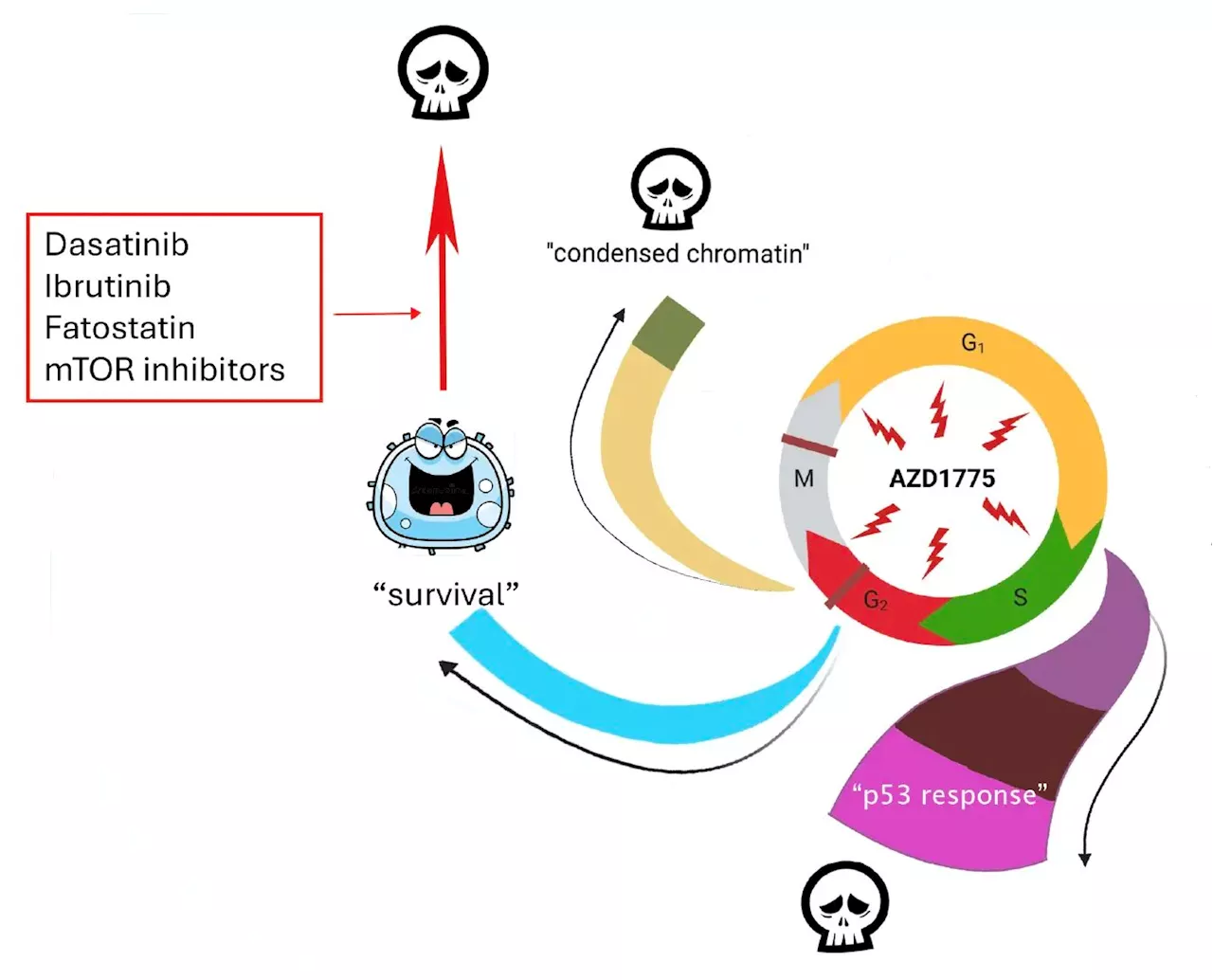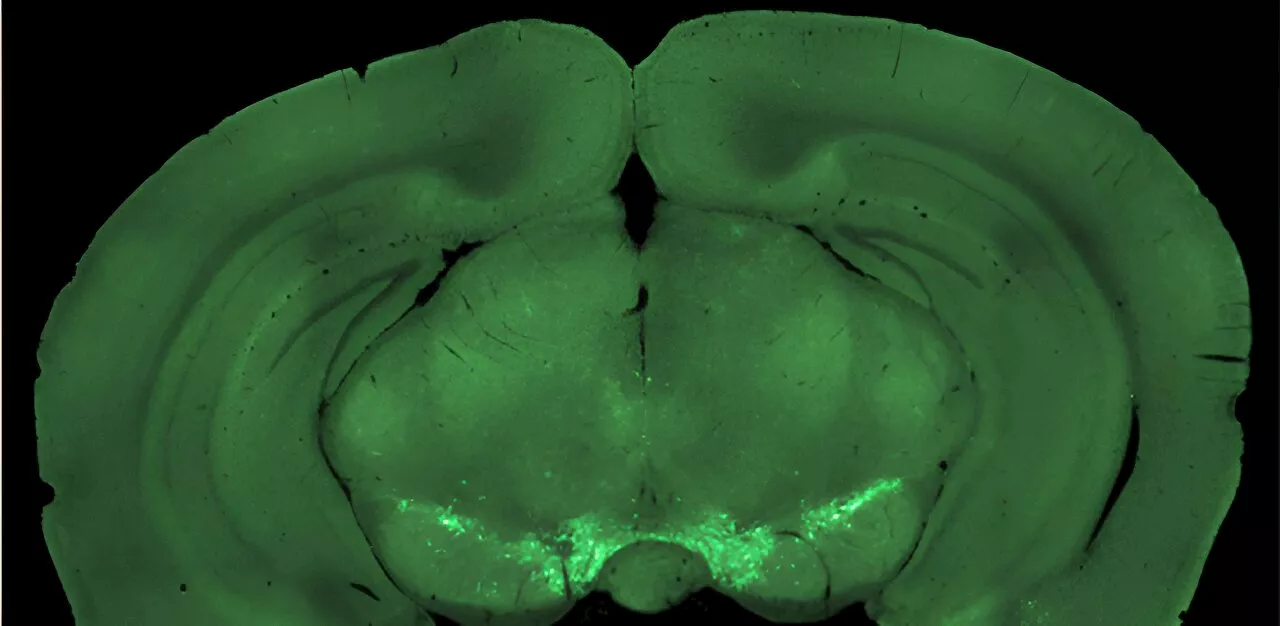Researchers at Karolinska Institutet in Sweden have developed nanorobots that kill cancer cells in mice.
Karolinska InstitutetJul 1 2024 The robot's weapon is hidden in a nanostructure and is exposed only in the tumor microenvironment, sparing healthy cells. The study is published in the journal Nature Nanotechnology .
"This hexagonal nanopattern of peptides becomes a lethal weapon," explains Professor Björn Högberg at the Department of Medical Biochemistry and Biophysics, Karolinska Institutet, who led the study. "If you were to administer it as a drug, it would indiscriminately start killing cells in the body, which would not be good. To get around this problem, we have hidden the weapon inside a nanostructure built from DNA.
We have managed to hide the weapon in such a way that it can only be exposed in the environment found in and around a solid tumor. This means that we have created a type of nanorobot that can specifically target and kill cancer cells." The key is the low pH, or acidic microenvironment that usually surrounds cancer cells, which activates the nanorobot's weapon.
Related Stories"We now need to investigate whether this works in more advanced cancer models that more closely resemble the real human disease," says the study's first author Yang Wang, a researcher at the Department of Medical Biochemistry and Biophysics, Karolinska Institutet. "We also need to find out what side effects the method has before it can be tested on humans."
Amino Acid Biochemistry Cell Cell Death DNA Ligand Nanotechnology Peptides Ph Research
United Kingdom Latest News, United Kingdom Headlines
Similar News:You can also read news stories similar to this one that we have collected from other news sources.
 New methods provide increased survival for the elderly after surgeryA recent study by researchers at Karolinska Institutet and Karolinska University Hospital shows that survival rates after surgery have significantly improved over the years, even though patients have become sicker and older.
New methods provide increased survival for the elderly after surgeryA recent study by researchers at Karolinska Institutet and Karolinska University Hospital shows that survival rates after surgery have significantly improved over the years, even though patients have become sicker and older.
Read more »
 Q&A: Researchers determine that a subclass of stem cells replenish platelets more rapidlyTogether with researchers from University of Oxford, researchers at Karolinska Institutet have demonstrated that a subclass of stem cells that are dedicated to the production of platelets replenish those platelets through a distinct and shorter pathway than other stem cells.
Q&A: Researchers determine that a subclass of stem cells replenish platelets more rapidlyTogether with researchers from University of Oxford, researchers at Karolinska Institutet have demonstrated that a subclass of stem cells that are dedicated to the production of platelets replenish those platelets through a distinct and shorter pathway than other stem cells.
Read more »
 Popular diabetes drugs may reduce the risk of dementiaPeople with type 2 diabetes who are treated with GLP-1 agonists have a decreased risk of developing dementia, according to a new study from Karolinska Institutet published in the journal eClinicalMedicine.
Popular diabetes drugs may reduce the risk of dementiaPeople with type 2 diabetes who are treated with GLP-1 agonists have a decreased risk of developing dementia, according to a new study from Karolinska Institutet published in the journal eClinicalMedicine.
Read more »
 Targeting leukemia's survival route: A novel approach to overcoming leukemia recurrenceResearchers from Karolinska Institutet have, in collaboration with the University of Eastern Finland and Lund University, published a study in Genome Biology demonstrating that targeting cell cycle and cell fate regulatory programs blocks non-genetic cancer evolution in acute lymphoblastic leukemia.
Targeting leukemia's survival route: A novel approach to overcoming leukemia recurrenceResearchers from Karolinska Institutet have, in collaboration with the University of Eastern Finland and Lund University, published a study in Genome Biology demonstrating that targeting cell cycle and cell fate regulatory programs blocks non-genetic cancer evolution in acute lymphoblastic leukemia.
Read more »
 New test detects more cases of cervical cancerResearchers at Karolinska Institutet in Sweden and the University of Innsbruck in Austria have developed a simpler and more effective screening method for cervical cancer than the method used today. The comprehensive study published in Nature Medicine shows that the test detects significantly more cancers and precancerous stages.
New test detects more cases of cervical cancerResearchers at Karolinska Institutet in Sweden and the University of Innsbruck in Austria have developed a simpler and more effective screening method for cervical cancer than the method used today. The comprehensive study published in Nature Medicine shows that the test detects significantly more cancers and precancerous stages.
Read more »
 Researchers show how dopamine pathways contribute to complex neural circuits that control goal-directed behaviorEver wondered how your brain decides when to act? Initiating actions with a specific goal in mind is a complex process. Previous research has identified certain parts of the brain and chemical signals involved. However, it remains unclear what information these signals convey and how they spark initiative.
Researchers show how dopamine pathways contribute to complex neural circuits that control goal-directed behaviorEver wondered how your brain decides when to act? Initiating actions with a specific goal in mind is a complex process. Previous research has identified certain parts of the brain and chemical signals involved. However, it remains unclear what information these signals convey and how they spark initiative.
Read more »
